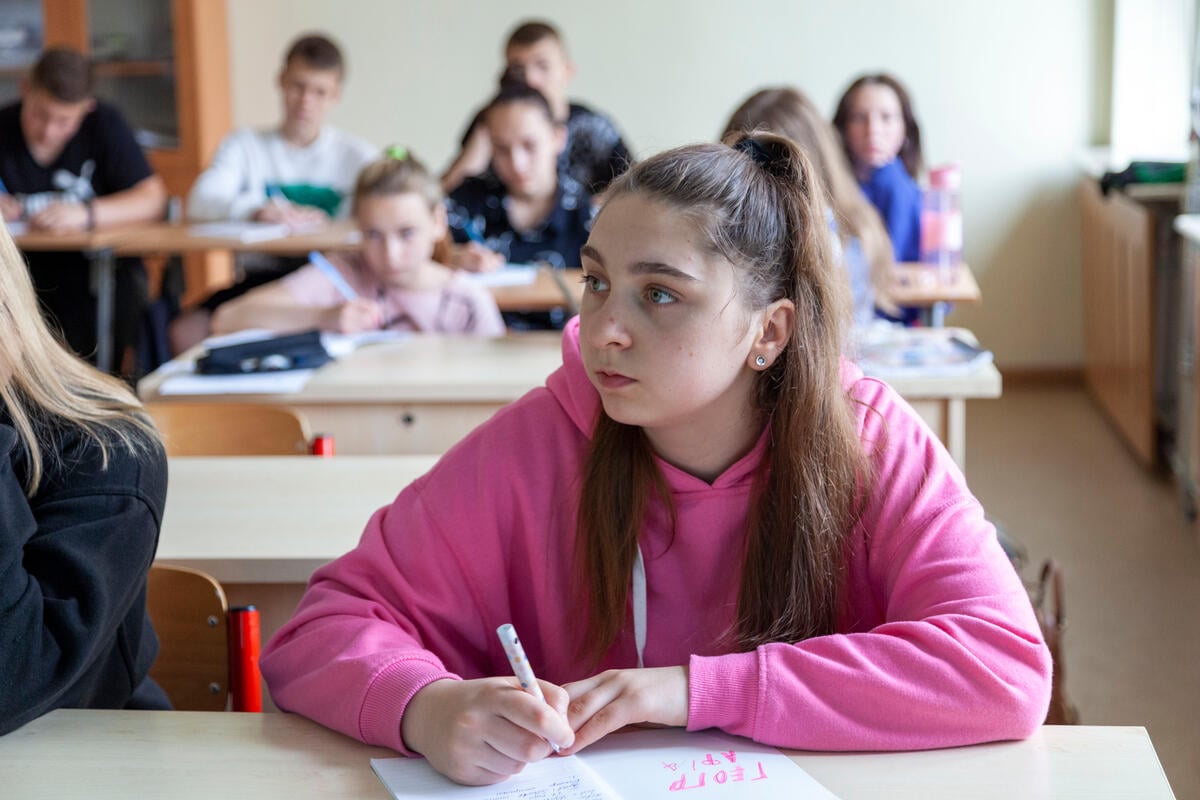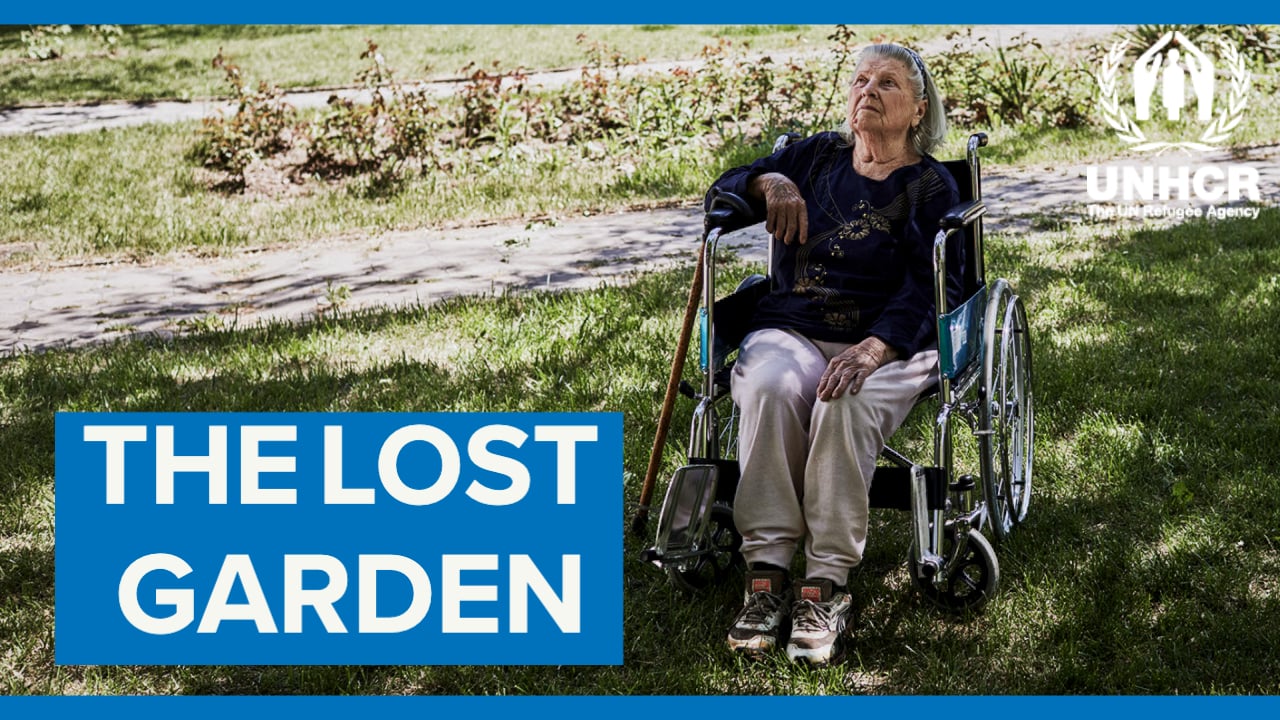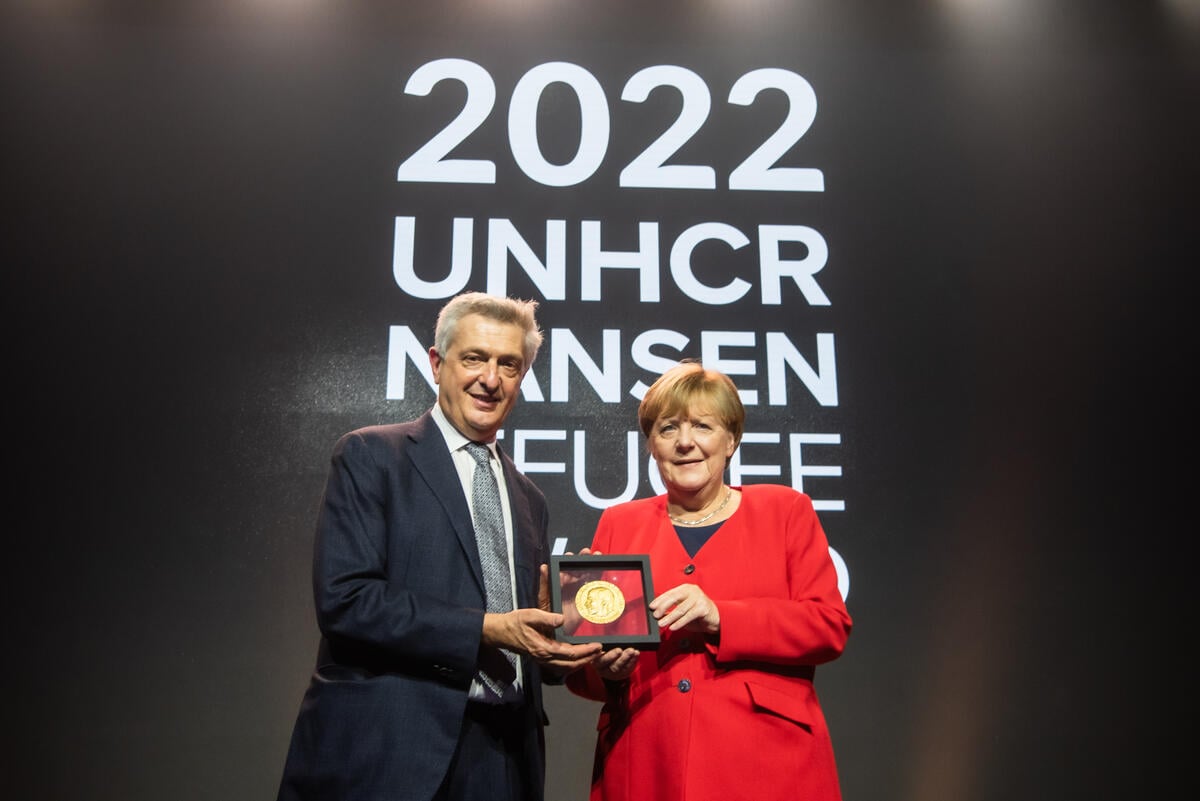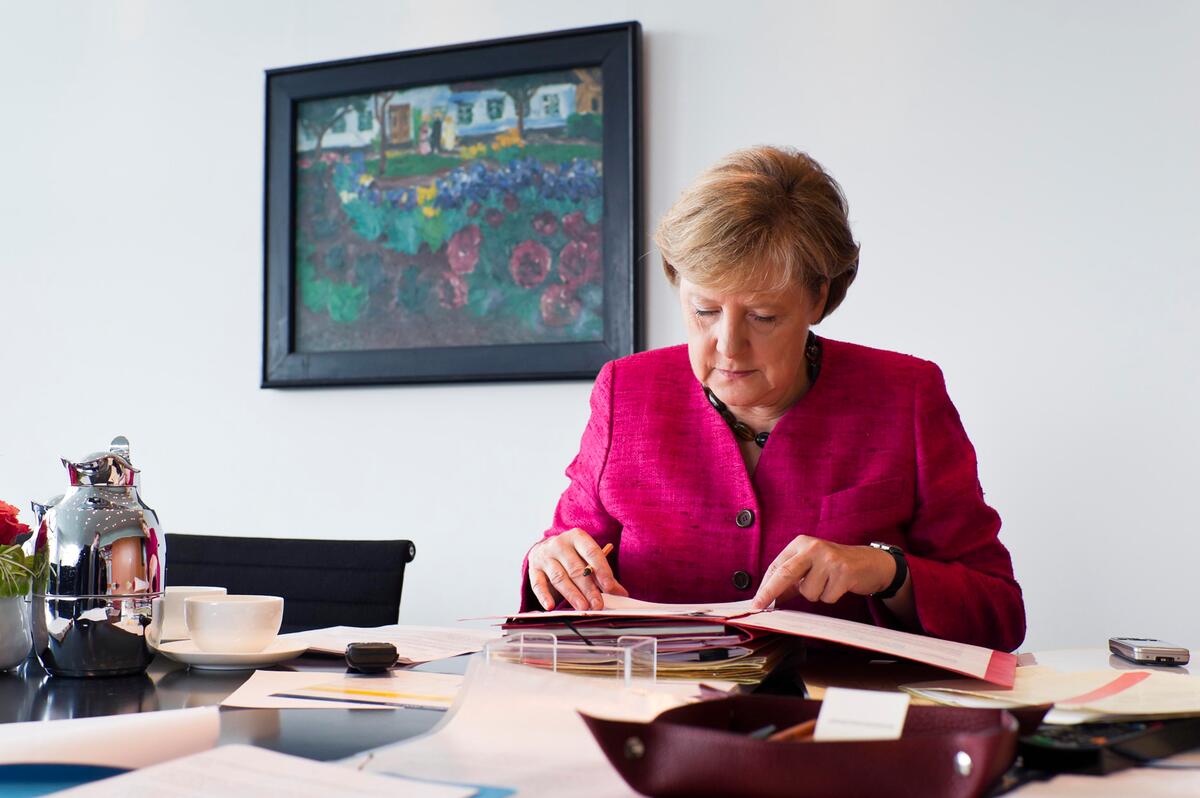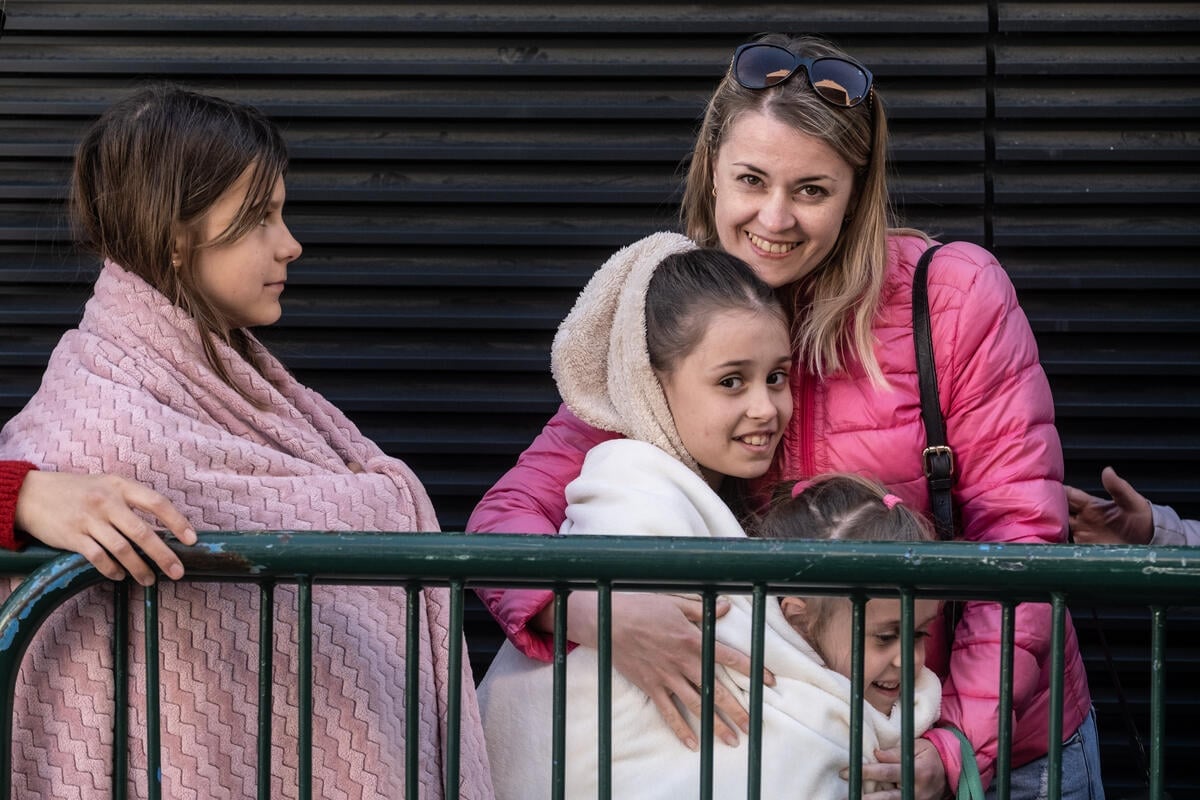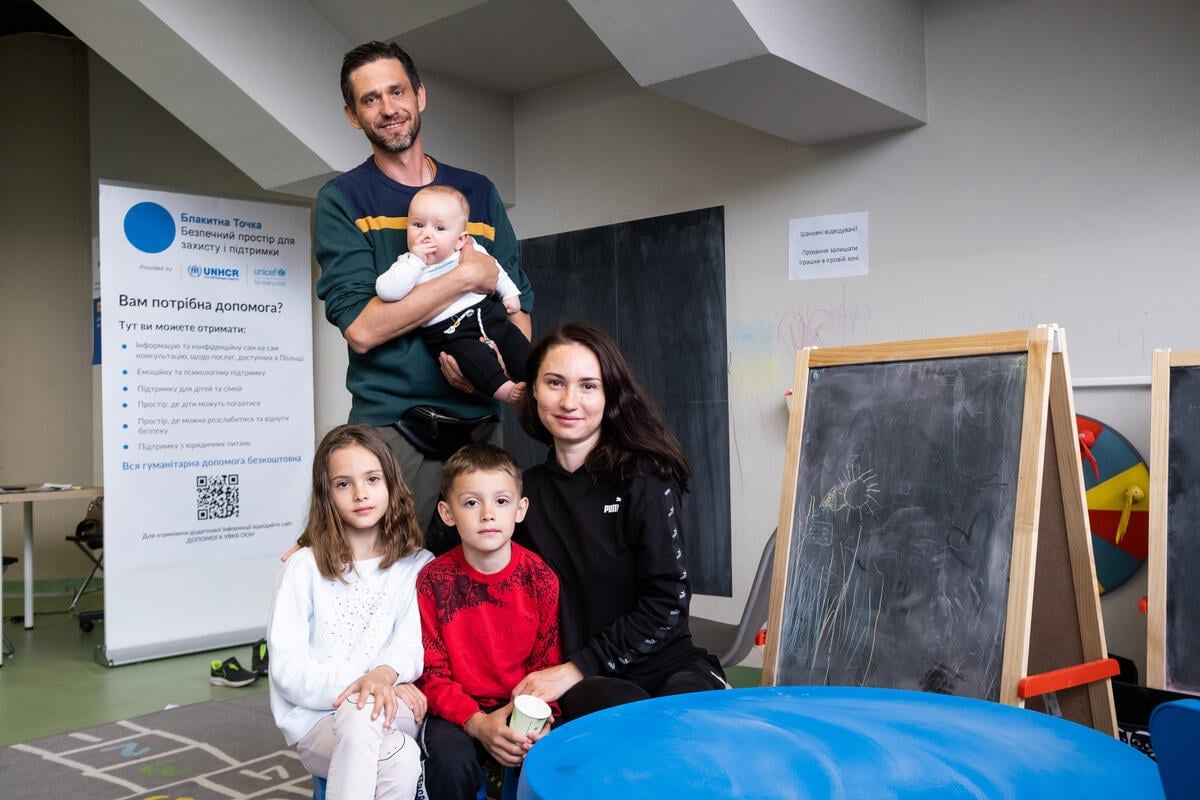Fearing rejection in Hungary's cold comfort transit zones
Fearing rejection in Hungary's cold comfort transit zones

RÖSZKE, Hungary, June 7 (UNHCR) - Omid Ahmadi, a student journalist from the Afghan capital of Kabul, sits in a field on the Serbia-Hungary border and contemplates the fence that separates him from the EU, so near and yet so far.
Unlike fellow refugees camping around him, he doesn’t even have the shelter of a tent. But he makes no complaint about his rough physical conditions, as he waits in the hope of legal entry to Hungary. “Whatever is the rule, I am obeying the rule. I just want someone to listen to me.”
He is bright and well-informed but Omid, 17, who fled the Taliban, cannot know the brush off he is likely to receive if and when he is allowed to pass through the turnstile into the “transit zone”. There, officers from Hungary’s Office of Immigration and Nationality (OIN) sit in little blue cabins, considering asylum cases at a rate of about 20 a day.
“We remain concerned about Hungary’s restrictive approaches and the dire situation asylum-seekers face outside the transit zones. Currently, only 15-17 people are admitted daily at each zone, leaving hundreds to suffer day and night without any proper support at the EU border,” said Samar Mazloum, head of UNHCR’s field office in Szeged.
“The current approach makes it very easy for human-traffickers to further exploit desperate refugees and pushes them to take more dangerous routes when legal ways are shut.”
In a recent report entitled “Hungary as a Country of Asylum”, the UNHCR concluded that “significant aspects of Hungarian law and practice raise serious concerns as regards compatibility with international and European law”.
Two transit zones have been set up on Hungary’s border with Serbia, one at Röszke and the other at Tompa. Currently, there are about 300 refugees at each site, most of them Afghans.

The field at Röszke, where Omid passes empty, anxious days, is larger than the grass strip at Tompa but otherwise conditions are similar: a single tap, no toilets; handouts of picnic food.
The discomfort and the wait would be bearable if only there were an orderly queue, say many refugees. But they are plucked, seemingly at random, for their interviews. The uncertainty raises desperation and tension among the asylum seekers. Single males have a hard time getting a hearing.
At home, I studied psychology and philosophy,” says Omid. “I had many books. I compare that time with my situation now, getting hopeless, oh man! I try to remember that after the dark, there is light.”
UNHCR field workers try to identify the vulnerable and plead for them with OIN but many sick people are languishing in the tents.
In Röszke, Sardat Tajik, 64, a widow with four children, holds a plastic bag filled with pills and tablets she needs to take for heart disease. She says she left Herat because of "threats from enemies" and cannot go back.
In Tompa, Masoma Afshar, 35, a mother of three from Kabul, lies in agony from a poorly healed ankle, which she broke in Turkey. Instead of resting, she walked on crutches for 30 hours on the road to Belgrade.
"The current approach makes it very easy for human-traffickers to further exploit desperate refugees."
Others approach, waving medical certificates from Serbian doctors -- Shema Sahen suffers from rheumatism, Marzijeh Hosseini has a brain tumor. Despite his diagnosis of angina, Akhtar Nezam Ghaed finds the energy to brush five pairs of shoes and lines them up neatly outside his family’s small tent.
The insides of the tents are kept clean. Women fold their shawls while children play cards or blow bubbles. Although the refugees have nothing material to give, sitting with them on their blankets, I feel I have experienced their hospitality.
Sajad Azizi, 22, proudly invites me into his tent, the biggest in the Röszke camp. It was provided by a local charity, he says. Inside are his father-in-law, brother-in-law and three sisters-in-law. Indeed, his story could be a bad in-law joke, if it were not so tragic.
People smugglers put the large family in two cars that got separated on the journey through Serbia. Sajad’s wife Shugofa, 20, was in the other car, with her mother-in-law and brother-in-law. Sajad has lost contact with Shugofa and doesn’t know where she is.
“Quite a mix-up,” he says, flashing a radiant smile. Back in Kabul, Sajad worked at the Ministry of Commerce as a manager responsible for developing small business for women.
Sajad may be keeping his sanity – just – but others are in obvious mental distress. In Tompa, in Abdul Sami’s tent, his baby son crawls while his wife Fakhrea lies listless and unresponsive. “She’s not well,” he says, taking out a pack of photos of her relatives in body bags. “Drowned at sea,” he explains grimly.
Among the Afghans at Tompa are a few asylum seekers from Iran. Sattr Neisi, 30, a barber from Tehran, says he and his wife Zahra Azadi, also 30, joined the exodus because of political persecution. “Zahra spent three months in jail because of her work. She’s a lawyer, you know.”
Some of the Afghans would be at particular risk if they returned home because they served Western forces or world organisations and have been picked out by the Taliban as "collaborators.” Shakib Daqiq, 33, a graduate in business administration from Parwan province, is in this position because he worked as an interpreter for the French army.

In Tompa, in the dirt and heat of the day, Shakib wears a smart tweed jacket. He tries to comfort his six-year-old son Sadi.
Shakib is separated from his wife Nilah, 28, and his two other boys. “On the trek through the forest in Bulgaria,” he says, “Sadi wanted the toilet. I took him into the bushes and washed him in a stream. When I came back, the rest of my family had disappeared.”
He says Bulgarian police had arrested Nilah and other refugees and sent them back to Turkey. Shakib and Sadi spent a month in a Bulgarian prison before being allowed to move on through the Balkans.
“Sadi is crying all the time for his mother,” says Shakib. “He says if he cannot see her, he will go and kill himself on the motorway.”
In the field at Röszke, another Afghan son is crying for his mother. Ahmad Menawal, 16, is not hysterical but weeping. “Please come and see my Mum,” he says. “She is so depressed.”
Ahmad has said his father, Abdul Wasi, a doctor who died of an illness in Kabul three years ago, had a career with the United Nations. His mother, Anahita Sherzad, worked for the Red Cross.
Anahita, 50, looks frail. A doctor in Serbia has prescribed diazepam for clinical depression. She speaks of her Red Cross work. “I was a hygiene promoter,” she says. “We had the five-point message: good food, clean water, garbage, sewage and mosquitoes.” The story starts to sound plausible.
There is no electricity to recharge phones in the field but later Ahmad somehow manages to get a connection and sends scans of documents appearing to prove his father ran a pharmaceutical store for the World Health Organization.
“In Afghanistan, people called us un-Islamic because my parents worked with foreigners,” says Ahmad. “We are praying for a welcome in Europe. Is there nothing you can do to help us?”
Footnote: Since our visit to the transit zones, Omid Ahmadi and Ahmad Menawal and his mother Anahita have made it through into Hungary and are now in open reception centres.
For the latest news from the border, please click hereLink is external.


